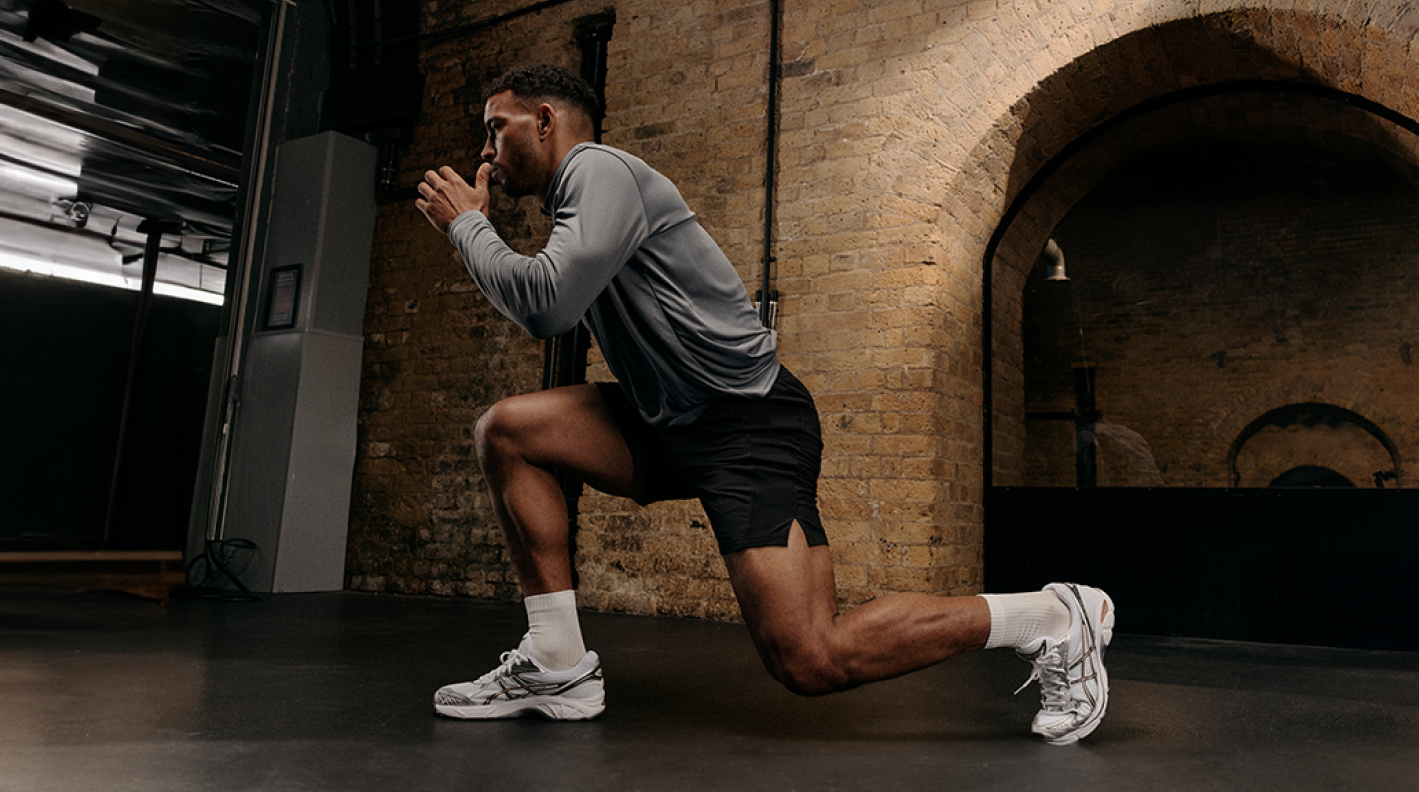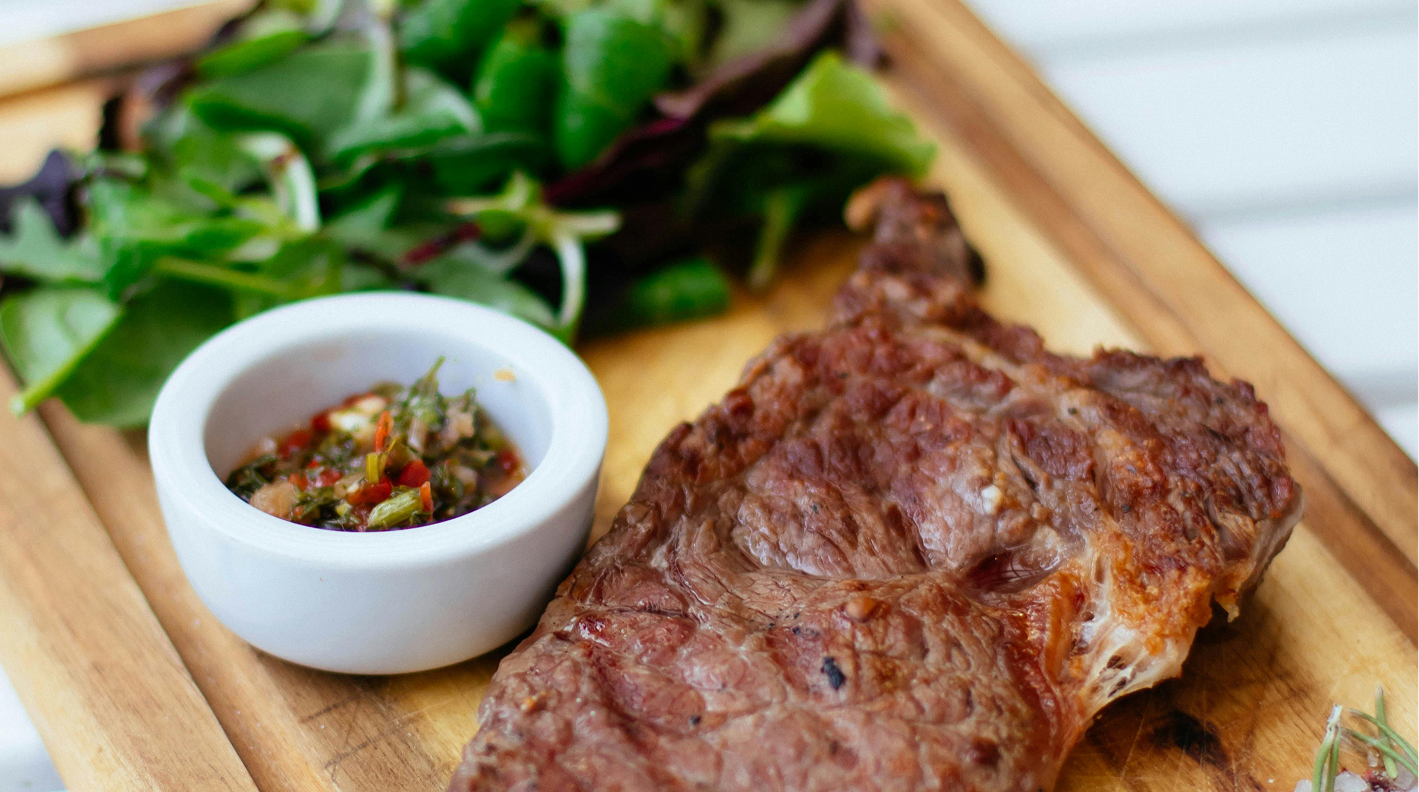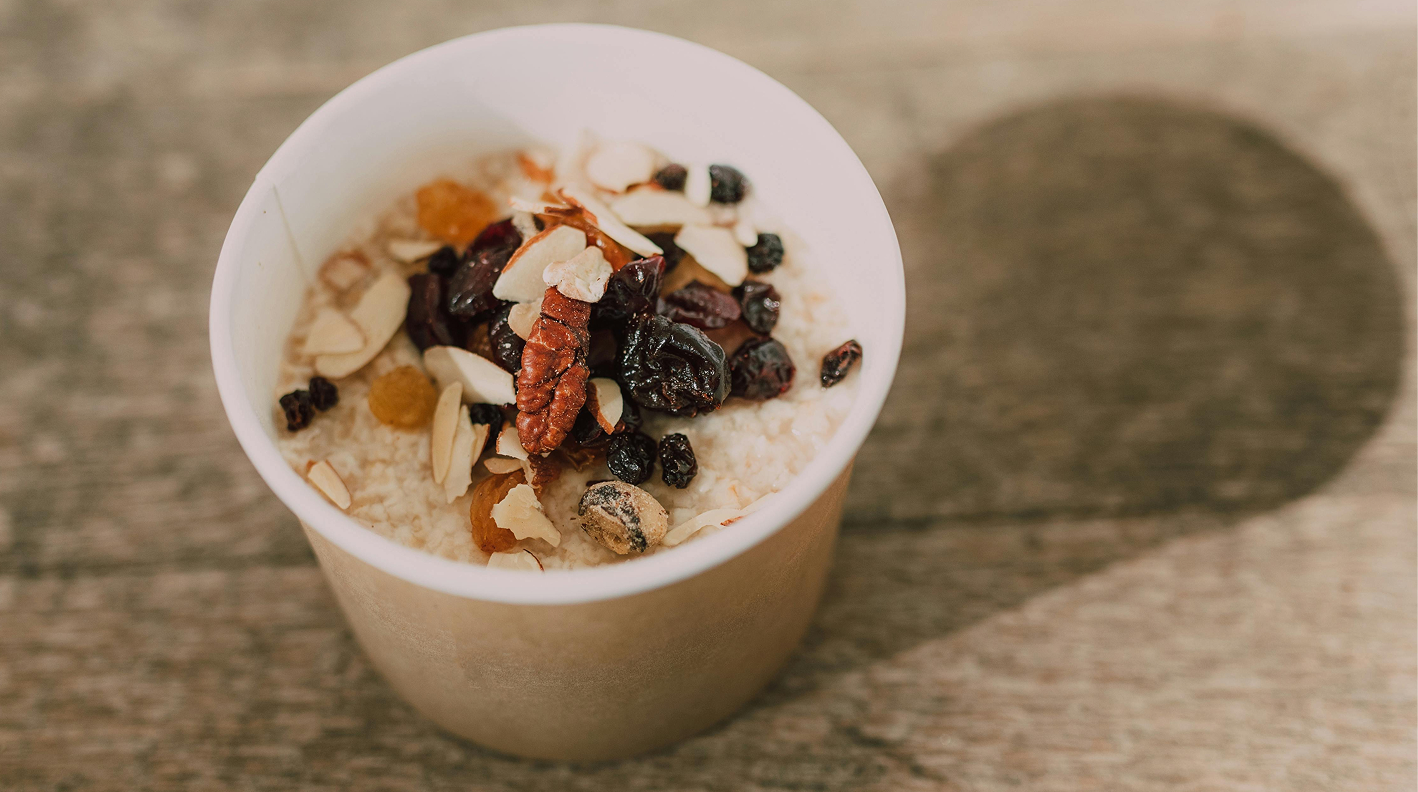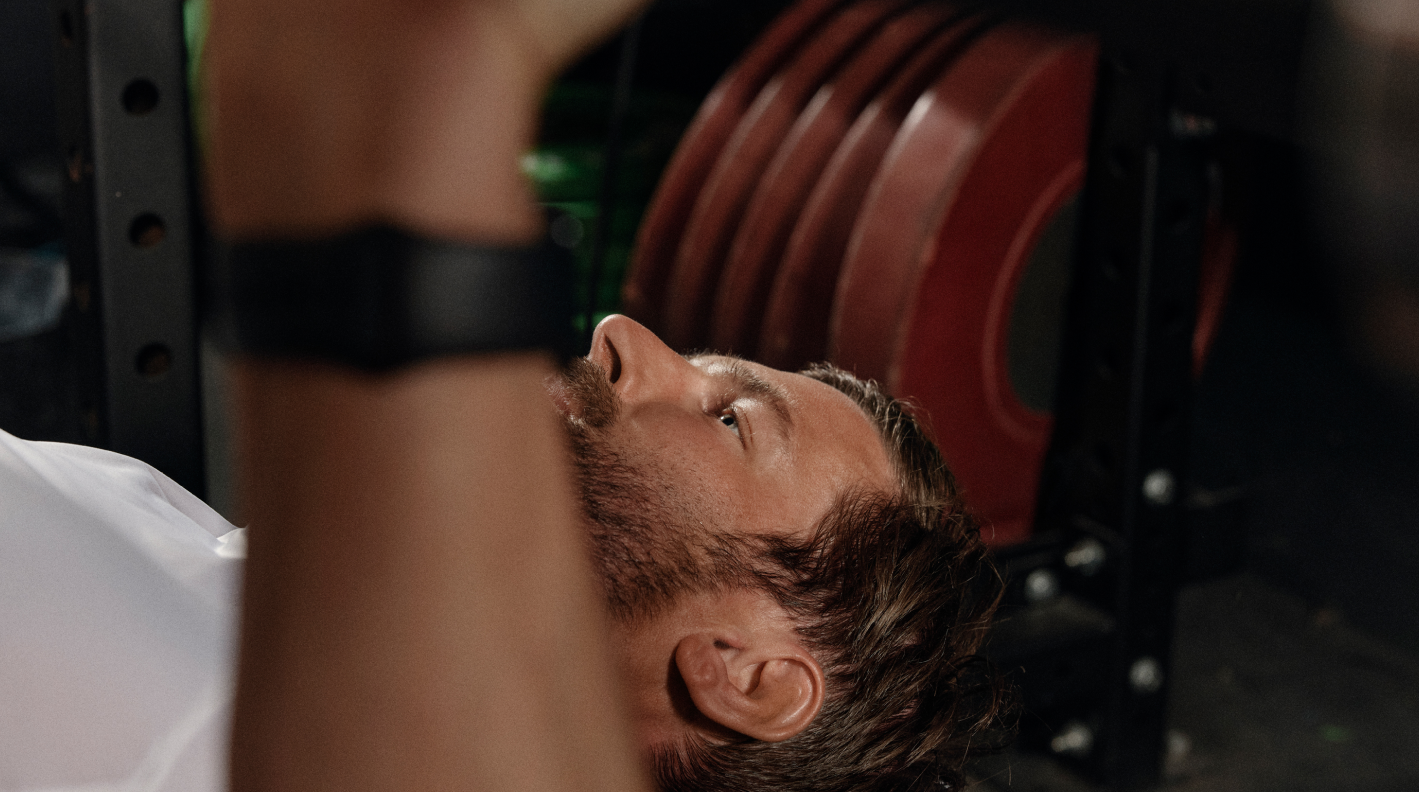Body recomposition: How you can lose fat and build muscle mass

Key takeaways
- The process of body recomposition involves simultaneously losing body fat and building muscle. It is achievable through a combination of resistance training, aerobic exercise, and a high-protein diet tailored to caloric and activity needs.
- Body recomposition is possible for people of varying fitness levels. Those who are overweight or new to training may see faster results, but even well-trained individuals can achieve it with the right strategies.
- Key approaches include progressive strength training, combining compound and isolation exercises, incorporating moderate cardio, and maintaining a consistent, nutrient-dense diet with a focus on protein. Supporting factors like adequate sleep, hydration, and minimising alcohol intake also enhance results.
Losing excess body fat while gaining muscle, also known as body recomposition, is the holy grail for many. Previously a myth based on the prevailing theory that muscle gain was not possible unless you’re in a significant calorie surplus, however, this was recently debunked [1].
So, is it possible after all? Well, with the right exercise programme, meal plan and lifestyle changes, it can be — and Compound is here to help you figure it all out.
Let's look at how you can approach losing body fat, gaining muscle, and achieving body recomposition.
What is body recomposition?
Body composition refers to your bone, muscle and body fat percentage and it is generally influenced by a number of factors including one's environment, genetics and lifestyle.
Body composition is often assessed in order to ascertain certain health risks; for example, those with a higher body fat percentage usually have a higher risk of developing cardiovascular diseases and type 2 diabetes [2].
Body recomposition, on the other hand, refers to the process of decreasing body fat and building muscle at the same time, which is often achieved with progressive resistance training and evidence-based nutritional strategies [3].
Is body recomposition achievable?
Recent evidence is demonstrating that body recomposition is indeed possible.
While those who are overweight and/or are training irregularly appear to have the greatest potential to achieve body recomposition, it can also be possible in well-trained individuals [3].
When it comes to exercise for body recomposition, combining both resistance training and aerobic exercise can be effective in helping you lose weight, gain muscle mass, and optimise body composition [3].
The other factor is your calorie intake. A calorie deficit is required to lose significant fat but the key to building muscle at the same time is optimising resistance training for hypertrophy (muscle growth) and consuming a high-protein diet [4][5].
How much protein should you consume?
Achieving body recomposition will require a higher protein diet than many are accustomed to, however, optimal protein intake depends on many conditions and is often poorly understood.
The mainstream positioning that the Recommended Dietary Intake (RDI) of 0.8g of protein per kg body weight is adequate is fundamentally flawed [6].
Though body recomposition is possible, there’s still an inherent trade-off between fat loss and muscle gain and it appears that calorie deficits greater than 500 kcal/day may result in less-than-ideal outcomes to lean body mass as the body breaks down muscle mass into glucose (via gluconeogenesis) [7].
There’s a lot to learn from natural bodybuilders and their preparation for competitions — often involving calorie deficits near 500 kcal/day — with one study suggesting that 2.3-3.1g protein per kg lean mass (not total body weight) is optimal to preserve muscle during aggressive fat loss [8].
This roughly aligns with other studies evaluating protein targets to preserve muscle mass during significant calorie deficits [9][10].
Protein doesn't need to be as high if you’re not shredding; the optimal target for more incremental changes in body composition is around 1.6g/kg body mass [9][10].
Exercise and body recomposition
When it comes to exercise for losing fat and building muscle, there are 3 key components to consider:
Strength training
Strength training is designed to make your muscles contract against resistance, through the use of equipment such as dumbbells, kettlebells, barbells, weight machines, or even your own body weight.
One of the most important things when it comes to strength training — along with using proper form — is to incorporate progressive overloading.
This means that you gradually increase the intensity of your workouts to avoid hitting a plateau with your muscle growth, and there are a few ways you can do it:
- Adding more weight to your lifts
- Performing more repetitions or sets
- Reducing rest periods
- Increasing the frequency of your weekly workouts
When it comes to selecting exercises, compound movements like deadlifts, squats, hip thrusts and bench presses are a solid choice.
These work several muscle groups simultaneously, which can make your workouts more effective — especially beneficial if you're pressed for time. They also lend themselves well to progressive overload, helping you build strength more quickly.
And since you're engaging more muscles than you would with isolation exercises (which focus on one single muscle group), compound exercises also lead to greater energy expenditure.
This isn't to say you shouldn't do isolation moves, like bicep curls, hamstring curls or lateral raises. They still have their place in your body recomposition journey and can be great for activating specific muscles and correcting muscle imbalances.
For beginners, though, it's often recommended that compound exercises make up the majority of a workout and form the foundation of your routine.
Cardio
Cardio is sometimes associated with muscle loss, and some argue that it has no place in body recomp — but that isn't necessarily true. Contrary to popular belief, you don't need to completely eliminate cardio from your routine but instead do it in moderation.
Incorporating 1-2 high-intensity interval training (HIIT) sessions into your weekly split, for example, is a balanced approach. It allows you to get your heart rate up and effectively burn fat, while still activating your muscles.
Or, you can try MISS — moderate-intensity steady-state cardio — where you keep your heart rate at about 50-70% of your maximum heart rate [11].
MISS is a beginner-friendly, reliable way of burning calories, but it doesn't have the same muscle-building benefits as HIIT.
Walking
Walking is a form of cardio, but it deserves a mention of its own as it can often be overlooked. Though low-impact, walking every day will help maximise fat loss, while also preserving lean muscle mass [12][13].
Regardless of your strength training or cardio schedule and how many steps you walk, the most important thing is consistency.
It's also a great way of moving your body on active rest days, improving blood flow, reducing muscle stiffness and, as a result, promoting recovery between strength training sessions.
How to monitor your body composition
Body recomposition isn't focused solely on weight loss, so using a traditional body scale isn't the best way to track your progress. Instead, you can:
Take your measurements
Use an app or notebook to keep a record of your measurements over time. For the most comprehensive assessment, measure your neck, arms (biceps and triceps), chest, stomach, waist, hips, thighs and calves.
Use a body fat scale
Smart scales are a convenient way to measure your body composition at home. Be sure to check online reviews and accuracy ratings before investing in one.
Take progress photos
As you lose fat and gain muscle, your appearance will change, but this might not be obvious just by looking at yourself in the mirror. Instead, take progress photos every fortnight or month — front, side and back — with consistent lighting and pose.
Pay attention to how your clothes fit
As your body changes, your clothes should start to fit differently. This isn't the most objective method, but it's still a valid way of gauging your progress.
Get a DEXA scan
Although not as readily available as the alternatives listed above, DEXA scans are one of the most accurate ways of measuring body fat and muscle mass.
How long does body recomposition take?
There's no set timeline for body recomposition and everyone's journey is unique. Plus, fat loss takes time, and so does muscle growth.
Having said that, if you remain consistent with your nutrition and fitness regimen, you may start to see results within 8-12 weeks [14] — your clothes may start to fit differently and your friends and family may notice visible changes in your physique.
Common body recomposition mistakes to avoid
Body recomposition can be difficult to navigate, especially if you're new to the concept. In order to prevent setbacks, avoid:
Eating too little
If your calorie deficit is too drastic, you may see the number on the scale go down, but this likely means that you're losing both body fat and lean muscle mass — not the goal of body recomposition.
Food is your fuel for effective training and your body needs energy to perform and recover. If you're unsure how many calories you should consume for optimal results, consider speaking with a dietitian or health coach.
Consuming too much alcohol
Excessive alcohol consumption can hinder your body recomposition progress for several reasons. It is high in empty calories, and can disrupt your hormone balance, interfere with your sleep, and impair protein synthesis and recovery, making it harder for your body to rebuild muscle after your workouts.
Not to mention, drinking can lower your inhibitions, leading to poor food choices or overeating.
Not getting enough sleep
Sleep is an often overlooked factor in fitness and weight management, but it's important to rest properly, aiming for 7-9 hours of uninterrupted sleep each night.
While you sleep, your body releases human growth hormone, which stimulates protein synthesis and aids in muscle repair and growth [15]. Sleep also helps refuel your muscles for your workouts and reduce any inflammation that may happen due to intense exercise [16].
Achieve body recomposition with Compound
At Compound, we’re dedicated to helping you live better, for longer. Our Body Transformation Programme combines medical treatments, prescriber support and personalised guidance to help you not just lose weight but completely transform your body and health for life.
- Breakthrough medication: Lose up to 21% of your body weight in 72 weeks with once-weekly, clinically proven treatment. It keeps you feeling fuller for longer, so eating less feels natural. Pair them with the Compound Code to lock results in for good.
- Compound Code: Our medication creates opportunity — Compound helps you seize it. Our proven system makes your treatment work harder. The Compound Code builds the muscle, energy, and fitness that medication alone can't deliver. Our holistic approach transforms not just how you look, but how you feel and function daily. So when you eventually finish treatment, your results don't disappear with it.
Losing excess body fat while gaining muscle, also known as body recomposition, is the holy grail for many. Previously a myth based on the prevailing theory that muscle gain was not possible unless you’re in a significant calorie surplus, however, this was recently debunked [1].
So, is it possible after all? Well, with the right exercise programme, meal plan and lifestyle changes, it can be — and Compound is here to help you figure it all out.
Let's look at how you can approach losing body fat, gaining muscle, and achieving body recomposition.
What is body recomposition?
Body composition refers to your bone, muscle and body fat percentage and it is generally influenced by a number of factors including one's environment, genetics and lifestyle.
Body composition is often assessed in order to ascertain certain health risks; for example, those with a higher body fat percentage usually have a higher risk of developing cardiovascular diseases and type 2 diabetes [2].
Body recomposition, on the other hand, refers to the process of decreasing body fat and building muscle at the same time, which is often achieved with progressive resistance training and evidence-based nutritional strategies [3].
Is body recomposition achievable?
Recent evidence is demonstrating that body recomposition is indeed possible.
While those who are overweight and/or are training irregularly appear to have the greatest potential to achieve body recomposition, it can also be possible in well-trained individuals [3].
When it comes to exercise for body recomposition, combining both resistance training and aerobic exercise can be effective in helping you lose weight, gain muscle mass, and optimise body composition [3].
The other factor is your calorie intake. A calorie deficit is required to lose significant fat but the key to building muscle at the same time is optimising resistance training for hypertrophy (muscle growth) and consuming a high-protein diet [4][5].
How much protein should you consume?
Achieving body recomposition will require a higher protein diet than many are accustomed to, however, optimal protein intake depends on many conditions and is often poorly understood.
The mainstream positioning that the Recommended Dietary Intake (RDI) of 0.8g of protein per kg body weight is adequate is fundamentally flawed [6].
Though body recomposition is possible, there’s still an inherent trade-off between fat loss and muscle gain and it appears that calorie deficits greater than 500 kcal/day may result in less-than-ideal outcomes to lean body mass as the body breaks down muscle mass into glucose (via gluconeogenesis) [7].
There’s a lot to learn from natural bodybuilders and their preparation for competitions — often involving calorie deficits near 500 kcal/day — with one study suggesting that 2.3-3.1g protein per kg lean mass (not total body weight) is optimal to preserve muscle during aggressive fat loss [8].
This roughly aligns with other studies evaluating protein targets to preserve muscle mass during significant calorie deficits [9][10].
Protein doesn't need to be as high if you’re not shredding; the optimal target for more incremental changes in body composition is around 1.6g/kg body mass [9][10].
Exercise and body recomposition
When it comes to exercise for losing fat and building muscle, there are 3 key components to consider:
Strength training
Strength training is designed to make your muscles contract against resistance, through the use of equipment such as dumbbells, kettlebells, barbells, weight machines, or even your own body weight.
One of the most important things when it comes to strength training — along with using proper form — is to incorporate progressive overloading.
This means that you gradually increase the intensity of your workouts to avoid hitting a plateau with your muscle growth, and there are a few ways you can do it:
- Adding more weight to your lifts
- Performing more repetitions or sets
- Reducing rest periods
- Increasing the frequency of your weekly workouts
When it comes to selecting exercises, compound movements like deadlifts, squats, hip thrusts and bench presses are a solid choice.
These work several muscle groups simultaneously, which can make your workouts more effective — especially beneficial if you're pressed for time. They also lend themselves well to progressive overload, helping you build strength more quickly.
And since you're engaging more muscles than you would with isolation exercises (which focus on one single muscle group), compound exercises also lead to greater energy expenditure.
This isn't to say you shouldn't do isolation moves, like bicep curls, hamstring curls or lateral raises. They still have their place in your body recomposition journey and can be great for activating specific muscles and correcting muscle imbalances.
For beginners, though, it's often recommended that compound exercises make up the majority of a workout and form the foundation of your routine.
Cardio
Cardio is sometimes associated with muscle loss, and some argue that it has no place in body recomp — but that isn't necessarily true. Contrary to popular belief, you don't need to completely eliminate cardio from your routine but instead do it in moderation.
Incorporating 1-2 high-intensity interval training (HIIT) sessions into your weekly split, for example, is a balanced approach. It allows you to get your heart rate up and effectively burn fat, while still activating your muscles.
Or, you can try MISS — moderate-intensity steady-state cardio — where you keep your heart rate at about 50-70% of your maximum heart rate [11].
MISS is a beginner-friendly, reliable way of burning calories, but it doesn't have the same muscle-building benefits as HIIT.
Walking
Walking is a form of cardio, but it deserves a mention of its own as it can often be overlooked. Though low-impact, walking every day will help maximise fat loss, while also preserving lean muscle mass [12][13].
Regardless of your strength training or cardio schedule and how many steps you walk, the most important thing is consistency.
It's also a great way of moving your body on active rest days, improving blood flow, reducing muscle stiffness and, as a result, promoting recovery between strength training sessions.
How to monitor your body composition
Body recomposition isn't focused solely on weight loss, so using a traditional body scale isn't the best way to track your progress. Instead, you can:
Take your measurements
Use an app or notebook to keep a record of your measurements over time. For the most comprehensive assessment, measure your neck, arms (biceps and triceps), chest, stomach, waist, hips, thighs and calves.
Use a body fat scale
Smart scales are a convenient way to measure your body composition at home. Be sure to check online reviews and accuracy ratings before investing in one.
Take progress photos
As you lose fat and gain muscle, your appearance will change, but this might not be obvious just by looking at yourself in the mirror. Instead, take progress photos every fortnight or month — front, side and back — with consistent lighting and pose.
Pay attention to how your clothes fit
As your body changes, your clothes should start to fit differently. This isn't the most objective method, but it's still a valid way of gauging your progress.
Get a DEXA scan
Although not as readily available as the alternatives listed above, DEXA scans are one of the most accurate ways of measuring body fat and muscle mass.
How long does body recomposition take?
There's no set timeline for body recomposition and everyone's journey is unique. Plus, fat loss takes time, and so does muscle growth.
Having said that, if you remain consistent with your nutrition and fitness regimen, you may start to see results within 8-12 weeks [14] — your clothes may start to fit differently and your friends and family may notice visible changes in your physique.
Common body recomposition mistakes to avoid
Body recomposition can be difficult to navigate, especially if you're new to the concept. In order to prevent setbacks, avoid:
Eating too little
If your calorie deficit is too drastic, you may see the number on the scale go down, but this likely means that you're losing both body fat and lean muscle mass — not the goal of body recomposition.
Food is your fuel for effective training and your body needs energy to perform and recover. If you're unsure how many calories you should consume for optimal results, consider speaking with a dietitian or health coach.
Consuming too much alcohol
Excessive alcohol consumption can hinder your body recomposition progress for several reasons. It is high in empty calories, and can disrupt your hormone balance, interfere with your sleep, and impair protein synthesis and recovery, making it harder for your body to rebuild muscle after your workouts.
Not to mention, drinking can lower your inhibitions, leading to poor food choices or overeating.
Not getting enough sleep
Sleep is an often overlooked factor in fitness and weight management, but it's important to rest properly, aiming for 7-9 hours of uninterrupted sleep each night.
While you sleep, your body releases human growth hormone, which stimulates protein synthesis and aids in muscle repair and growth [15]. Sleep also helps refuel your muscles for your workouts and reduce any inflammation that may happen due to intense exercise [16].
Achieve body recomposition with Compound
At Compound, we’re dedicated to helping you live better, for longer. Our Body Transformation Programme combines medical treatments, prescriber support and personalised guidance to help you not just lose weight but completely transform your body and health for life.
- Breakthrough medication: Lose up to 21% of your body weight in 72 weeks with once-weekly, clinically proven treatment. It keeps you feeling fuller for longer, so eating less feels natural. Pair them with the Compound Code to lock results in for good.
- Compound Code: Our medication creates opportunity — Compound helps you seize it. Our proven system makes your treatment work harder. The Compound Code builds the muscle, energy, and fitness that medication alone can't deliver. Our holistic approach transforms not just how you look, but how you feel and function daily. So when you eventually finish treatment, your results don't disappear with it.
- https://www.researchsquare.com/article/rs-3184470/v1
- https://www.ncbi.nlm.nih.gov/pmc/articles/PMC8399582/
- https://journals.lww.com/nsca-scj/fulltext/2020/10000/body_recomposition__can_trained_individuals_build.3.aspx
- https://www.sciencedirect.com/science/article/pii/S0002916522065595?via%3Dihub
- https://pubmed.ncbi.nlm.nih.gov/23890352/
- https://examine.com/guides/protein-intake/
- https://pubmed.ncbi.nlm.nih.gov/34623696/
- https://www.ncbi.nlm.nih.gov/pmc/articles/PMC4033492/
- https://pubmed.ncbi.nlm.nih.gov/26817506/
- https://pubmed.ncbi.nlm.nih.gov/20164371/
- https://www.heart.org/en/healthy-living/fitness/fitness-basics/target-heart-rates
- https://pubmed.ncbi.nlm.nih.gov/25566464/
- https://pubmed.ncbi.nlm.nih.gov/19276190/
- https://journals.lww.com/nsca-scj/Fulltext/2020/10000/Body_Recomposition__Can_Trained_Individuals_Build.3.aspx
- https://pubmed.ncbi.nlm.nih.gov/8627466/
- https://www.ncbi.nlm.nih.gov/pmc/articles/PMC2785020/












